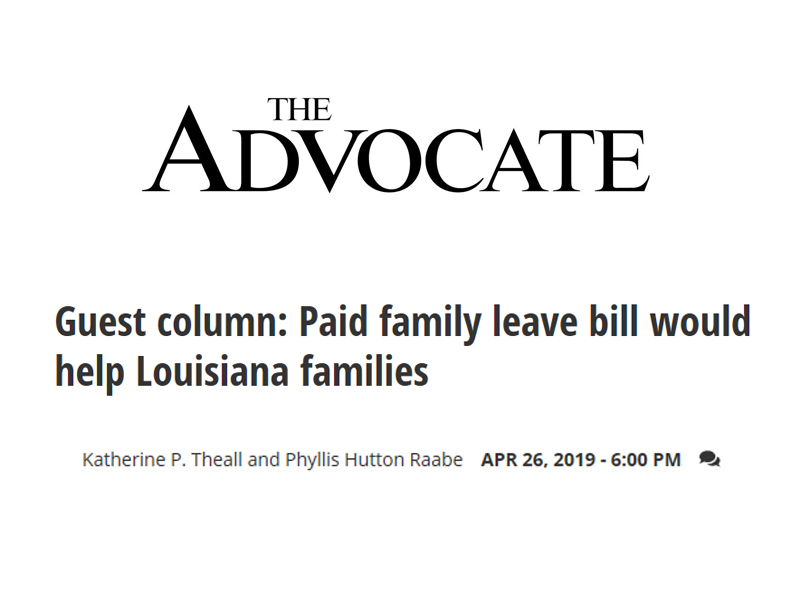Louisiana Makes Progress in Implementing Paid Family Leave Policy

Paid family leave is in alignment with the mission of the Mary Amelia Center. MAC’s Director, Dr. Katherine Theall and Dr. Phyllis Hutton Raabe, adjunct professor at the Tulane School of Public Health, recently wrote an op-ed for The Advocate where they outlined the benefits of paid leave for families, employers, and society. Paid family leave affords women the opportunity to physically recover after childbirth and bond with her newborn. Paid family leave polices also increase employment continuity and reduce turnover costs. A study done in 2018 found that the average cost of replacing an employee was 33% of their yearly salary. At this rate, providing an employee with 12 weeks of paid leave, would cost less than the cost of replacing them. Furthermore, all European countries, Canada, Australia, and Japan provide at least 14 weeks of paid leave for mothers of infants, and there are additional paid parental leaves for both mothers and fathers. The United States is one of only two countries that do not provide any form of paid maternity leave. The other country is Papua New Guinea.
On May 2, 2019, the Louisiana Senate Labor and Industrial Relations Committee advanced legislation (Senate Bill 186) to institute statewide paid family and medical leave, on a vote of 4-1. The bill proposes a small portion of an employee’s pay be withheld and redirected to a fund dedicated to financing family leave. Of the amount withheld, 55% would come from the employee and 45% would come from the employer. The bill would provide 80% of Louisiana’s workers with the ability to take up to 12 weeks off, while still receiving a portion of their pay. If the bill passes, employees would be able to care for a newborn, care for sick or injured family members, take leave for an illness, or have time to recover after domestic or sexual abuse. The next step is for the bill to be approved by the Senate Finance Committee before heading to the Senate. If it passes the full Senate and then passes the House, it would then finally reach the governor’s desk, where it would be expected to be signed into law.
For more info about paid family leave, take a look at MAC’s policy brief.
